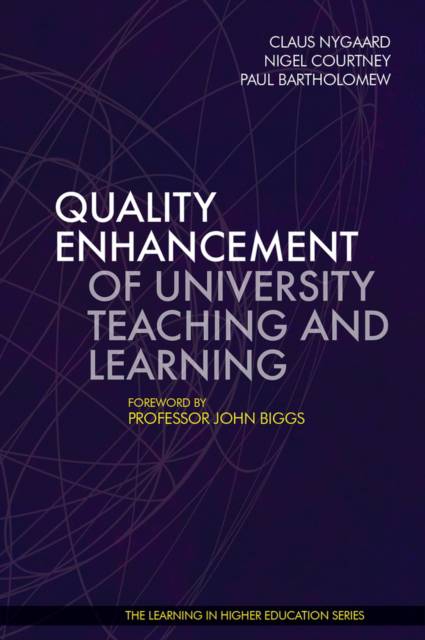
- Retrait gratuit dans votre magasin Club
- 7.000.000 titres dans notre catalogue
- Payer en toute sécurité
- Toujours un magasin près de chez vous
- Retrait gratuit dans votre magasin Club
- 7.000.0000 titres dans notre catalogue
- Payer en toute sécurité
- Toujours un magasin près de chez vous
Description
Focuses on approaches to quality enhancement, a process which has significant differences to the interrelated concept of quality assurance. The contributors believe that the status quo is no longer a viable option if the role of higher education as a fundamental part of the knowledge (and wider) economy is to be safeguarded.
Spécifications
Parties prenantes
- Auteur(s) :
- Editeur:
Contenu
- Nombre de pages :
- 280
- Collection :
Caractéristiques
- EAN:
- 9781909818125
- Date de parution :
- 30-10-14
- Format:
- Livre relié
- Dimensions :
- 156 mm x 236 mm
- Poids :
- 560 g

Les avis
Nous publions uniquement les avis qui respectent les conditions requises. Consultez nos conditions pour les avis.






